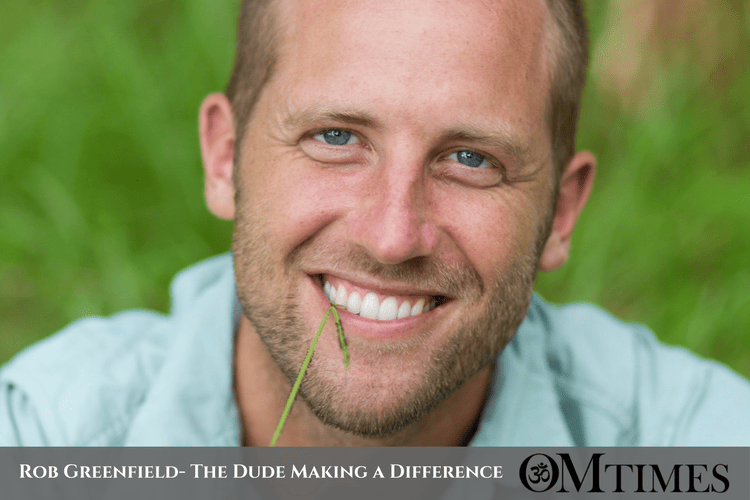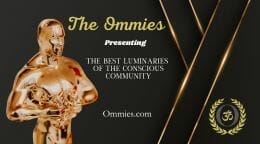Rob Greenfield: The Dude Making a Difference

 It’s a simple idea, albeit not an easy one, to inspire people to live in a manner that is beneficial to Earth, our communities and ourselves. But Rob Greenfield gave up doing easy, when at the age of 24 he started paying attention to the environmental and social issues of his generation and discovered that he was contributing to many of these problems himself through the food he was eating, the car he was driving and the stuff he was buying and consuming. At which point he began his transformation from a drunk dude to a dude who’s dedicating his life to making a difference.
It’s a simple idea, albeit not an easy one, to inspire people to live in a manner that is beneficial to Earth, our communities and ourselves. But Rob Greenfield gave up doing easy, when at the age of 24 he started paying attention to the environmental and social issues of his generation and discovered that he was contributing to many of these problems himself through the food he was eating, the car he was driving and the stuff he was buying and consuming. At which point he began his transformation from a drunk dude to a dude who’s dedicating his life to making a difference.
From cycling across the USA on a bamboo bicycle to foraging in grocery store dumpsters. From traveling across the USA without credit cards or cash, Rob Greenfield’s extreme adventures, and his activism campaigns, TEDx talks and TV series bringing awareness to important environmental issues, that have not only caught the attention of the world’s media.
He also inspired positive changes in countless people over the last six years to be the change we all wish to see in the world.
Interview with Rob Greenfield
Sandie Sedgbeer: Rob, your extreme adventures, and your in-your-face activism campaigns have been featured in numerous media outlets, including the BBC, CBS, Discovery Channel, US Today, Huffington Post, The Guardian and the LA Times. Did you have any idea when you set out on that first trip across America that you were riding into a whole new life as an environmental activist and humanitarian?
Rob Greenfield: Yeah, that was completely my intentions. At that point in 2013, well, I had been making changes in my life for two years at that point. I really started to feel like I was becoming an example, the change of what I wanted to see in the world. And so that’s where I decided that I really wanted to start leading by example and live it out loud. And so, I planned to really shake things up and try to get media to talk more about environmental issues and get more people to make positive changes. So yeah, that was the plan.
Sandie Sedgbeer: So what rules did you determine to live by throughout that journey?
Rob Greenfield: Well, on that bike trip the idea was to cross the country trying to have an as little environmental impact as I possibly could. So, and the idea was to do it in a way that I would be bettering myself while doing something that was kind of an interesting story for others to follow. On that trip, I focused on all the basic aspects of sustainable living. That’s food, water, energy, waste and transportation, all the things that we deal with on a daily basis whether we think about it or realize it or not.
Sandie Sedgbeer: So how difficult a journey was it?
Rob Greenfield: Well, it was a very difficult journey. That was biking on a bamboo bike from San Francisco to Vermont, 4700 miles and, trying to pay attention to every action that I made. Nevertheless, biking across the country in itself is hard. But doing it while trying to create zero trash, use, less water than for the entire trip than the average American uses in a couple of days, to try to eat only local, organic, unpackaged foods, to try to use no electricity from on the grid. I had all these rules to kind of bike off the grid across the United States with as little impact as possible. Every day it was a challenge, for sure.
Sandie Sedgbeer: I was reading your book, and you say how there were so many people who were so supportive along the way, but some people wanted to help you in ways that you didn’t want to be helped. They wanted to cook meals for you, but that was counter to, the way you wanted to live your life and have your meals cooked en route.
Rob Greenfield: Well, yeah. So, for this summer, I was doing a very set thing. I had set these rules to follow for the summer. And so, and they were kind of extreme rules to really prove a point and to get people to really step outside their box with me for at least a moment and start thinking about these things.
And so for the summer, the only food I could eat was local, organic, unpackaged food, which meant, pretty much nobody could cook for me because I had a very, set thing going on. And the same, I couldn’t use electricity, so that means they couldn’t use their stove or anything like that. When I was staying with people, setting up my tent in their backyard, as I was crossing the country and they really wanted to provide so much hospitality, it was a challenge because I often had to say well no, like I’d love to have your homemade cookies, but I just can’t.
Sandie Sedgbeer: Where did you get your determination to resist temptation from?
Rob Greenfield: Well, I guess I do feel like one of the most important characteristics is to have self-control. We’re talking about, changing ourselves environmentally, our mental consciousness, in a world where you’re being bombarded every day by 1000 times more consumeristic messages than you are health-conscious messages. If you turn on the TV, if you turn on the internet, if you walk down the street generally you’re being told to buy this, to purchase that, you need this and not things like just eat healthy food. Just be happy. So, you need self-control to be able to live a conscious and ethical lifestyle.
Sandie Sedgbeer: One of the things that are so shocking in your book is the amount of waste. I mean the number of dumpsters you dived into and the plethora of foods, many of which were still in within their sell-by date that you were able to plunder there. Were you aware of the scale of waste before you started on that journey?
Rob Greenfield: No, I definitely wasn’t aware at all. So, the deal was that I could only eat local, organic, unpackaged food. But the exception was that I could eat any food that was going to waste, which meant dumpster diving. And I had never been dumpster diving before, and on this trip, I basically was, I was forced to because I couldn’t find local organic unpackaged food in most parts of the country. We have this term, food desert, which is an area where there is no access to healthy food. And so that resulted in me having this exception, and that was that I could eat food that was going to waste.
So, I started to look inside dumpsters, and I was just instantly blown away. I mean the first dumpster I ever looked it was full of food, and then across the nation, I just continuously would check the dumpsters. And I found that dumpster after dumpster after dumpster, and we’re talking about grocery store dumpsters that are filled, often to the brim, with perfectly good food.
I was blown away. At first, it wasn’t something I talked about because of the whole ego aspect. But after a while it was just like a man, I’ve got to put my ego behind me. We’re talking about half of all the food in the United States is wasted. It’s a huge environmental problem, it’s a huge human problem. One in seven Americans are food insecure, so we’re wasting we have enough food to feed the entire country, yet people are hungry. So, I had to put my ego aside and start showing what I’m seeing now to really raise awareness about food waste.
Sandie Sedgbeer: Rob Greenfield, to put the scale of this waste into context, you say that we throw away $165 billion worth of food a year in the USA. This is more than the budget for the US national parks, public libraries, federal prisons, veterans health care, the FBI and the FDA combined. And we’re not just wasteful with food. In fact, you say that basically everything we need can be found in the trash. Can you expand on that?
Rob Greenfield: It is really hard to wrap our heads around because the thing is, most waste is out of sight, out of mind. It goes into the garbage can, or it goes into the dumpster, and then the garbage truck comes and picks it up, and then it’s in a container that you can’t see through, and then it goes to a landfill that is usually in a place where we never see. It’s out of sight again. And so the whole entire process is something that is very much behind the scenes. And so because of that, it’s totally out of mind. We never really have to think about it. It’s been done in a way that’s really just largely invisible to us. Now I think that’s something that’s not going to be able to continue forever. That’s sort of one of the delusions we have today that’s going to really catch up to us.
A veteran broadcaster, author, and media consultant, Sandie Sedgbeer brings her incisive interviewing style to a brand new series of radio programs, What Is Going OM on OMTimes Radio, showcasing the world’s leading thinkers, scientists, authors, educators and parenting experts whose ideas are at the cutting edge. A professional journalist who cut her teeth in the ultra-competitive world of British newspapers and magazines, Sandie has interviewed a wide range of personalities from authors, scientists, celebrities, spiritual teachers, and politicians.









